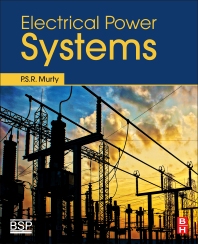Books in Energy and power
Books in Energy and power
Elsevier’s Energy and Power Collection offers the latest innovations in the energy transition with a focus on content that supports and advances the reduction of CO2 emissions. The collection includes content on solar, wind, geothermal, nuclear, biofuels and bioenergy, hydrogen and fuel cells, and addresses topics such as energy storage, efficiency, management, economics, and policy, among others.

Microalgae-Based Biofuels and Bioproducts
- 1st Edition
- Raul Muñoz + 1 more
- English

Advances and Innovations in Nuclear Decommissioning
- 1st Edition
- Michele Laraia
- English

Electrical Power Systems
- 1st Edition
- P.S.R. Murty
- English

Trends in Oil and Gas Corrosion Research and Technologies
- 1st Edition
- A. M. El-Sherik
- English

Power Systems Analysis
- 2nd Edition
- P.S.R. Murty
- English

Molten Salt Reactors and Thorium Energy
- 1st Edition
- Thomas James Dolan
- English

Renewable Energy
- 5th Edition
- Bent Sorensen
- English

Lacustrine Shale Gas
- 1st Edition
- Xiangzeng Wang
- English

Advances in Coal Mine Ground Control
- 1st Edition
- Syd S. Peng
- English

Geological Repository Systems for Safe Disposal of Spent Nuclear Fuels and Radioactive Waste
- 2nd Edition
- Michael J Apted + 1 more
- English